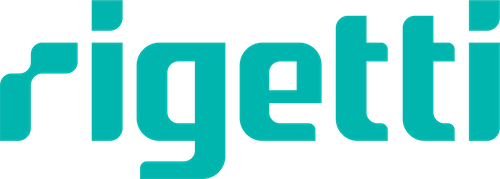Quantum computing companies are seeing their market caps crumble as investors patiently await out the winner-take-all approach to technology development.
Quantum computing firms such as Rigetti Computing, IonQ and D-Wave went public through mergers with blank-check companies in the last two years, with valuations at the time of well over $1 billion. Now the market capitalization of these companies are less than half – and in some cases about a tenth – compared to their original valuation.
But investors making the high-risk, high-reward investments are hoping that the research and development will pay off in the long-term return after the quantum products go commercial, which in some cases is in the 2030 time frame.
 Rigetti Computing Inc. was issued a notice by the Nasdaq Stock Market, LLC, (“Nasdaq”) that it would be delisted if it wasn’t compliant by July 24 this year on its stock price of being “at least $1.00 for a minimum of ten consecutive business days,” according to a filing with the Securities and Exchange Commission dated January 27.
Rigetti Computing Inc. was issued a notice by the Nasdaq Stock Market, LLC, (“Nasdaq”) that it would be delisted if it wasn’t compliant by July 24 this year on its stock price of being “at least $1.00 for a minimum of ten consecutive business days,” according to a filing with the Securities and Exchange Commission dated January 27.
“If the Company is unable to regain compliance before the Compliance Date, the Company may be eligible for an additional 180 calendar days to satisfy the Bid Price Rule,” Rigetti stated in its filing. The bid price is the highest amount a trader may pay for the stock. Rigetti could also appeal to get back in compliance.
Rigetti’s stock has been at or under $1 since December 9. It closed December 8 at $1.02, but also was at $1 on January 17. The stock peaked at $12.75 on Nov. 15, 2021 and closed that day $11.88.
Rigetti announced a SPAC (special purpose acquisition company) merger deal with Supernova Partners Acquisition II Ltd. in October, which pegged the company’s value at $1.5 billion. Rigetti’s market cap at the end of trading on February 2 was $106 million.
The SPAC deal, which closed in March, allowed Rigetti stock to be traded without the rigmarole of going through an IPO. Supernova Partners was listed under ticker symbol SNII.
At the time of the acquisition, Supernova executives said they were playing the long-ball game with Rigetti, making an investment with hopes that its investments will yield big returns in the future. Rigetti’s roadmap includes a 1,000 qubit system in 2026, and a 1 million qubit configuration – which is considered a threshold for a universal qubit system – in the future.
Rigetti is chasing a superconducting qubit, which has similarities with technologies being developed by IBM and Google. Rigetti has touted its own manufacturing facility to make the hardware in-house as its competitive advantage.

Late last year, Chad Rigetti, the founder, stepped down as CEO, and Subodh Kulkarni took over as CEO.
Rigetti in November said it expected 2022 fiscal revenue to be between $12.0 million and $13.0 million. The company estimates losses for full year of 2022 to be between $56 and $58 million.
Quantum startups like Rigetti are competing against chip behemoths Intel, Google and IBM, which have deep pockets and are developing their own types of qubits. Quantum technology is pegged as the next big step in computing, and the companies are racing to develop quantum technology that could be widely accepted. The competitive nature means there’s little to no agreement among the companies to focus on a common quantum technology.
D-Wave’s revenue was third quarter of fiscal 2022 was just $1.7 million, an improvement of just $388,000 compared to the same quarter in 2021. The net loss widened to $13.1 million, growing from $4.2 million in the year ago quarter.
D-Wave’s merger with SPAC DPCM Capital last year was valued at $1.6 billion. D-Wave’s stock, which traded at $1.20 at the close of market on February 2, had a market cap of $136 million.
D-Wave’s quantum roadmap includes a next-generation 7,000-plus qubit annealing system called Advantage2, which will launch either this year or next. The company is also building a gate-model quantum computer.
IonQ’s third quarter earnings were $2.76 million, compared to just $233,000 in the same quarter the previous year. The company said it struck a multimillion-dollar contract with the U.S. Air Force Research Lab. The company is developing trapped ion qubits, and its system is available through Microsoft’s Azure cloud and Dell.
The IonQ stock closed trading on February 2 at $5.49 and its market cap was $1.10 billion. That is lower than the $2 billion merger deal struck with SPAC dMY Technology Group in 2021.
Rigetti specifically has faced a lot of challenges – superconducting quantum computers are relatively cost-intensive to manufacture, said James Sanders, principal analyst for cloud, infrastructure, and quantum at CCS Insight.
“Getting funding for deep technology research on the open market is an appealing prospect, but for many of these companies, the SPAC route was a shortcut through the scrutiny that a company would normally experience as they go public,” Sanders said.
As far as cash flow goes, as public companies, they’ll face a lot more scrutiny in terms of generating recurring revenue than they would as private companies.
“Ultimately, tying an unproven technology such as quantum computing to an unproven financial vehicle like SPACs is extremely risky,” Sanders said.




























































